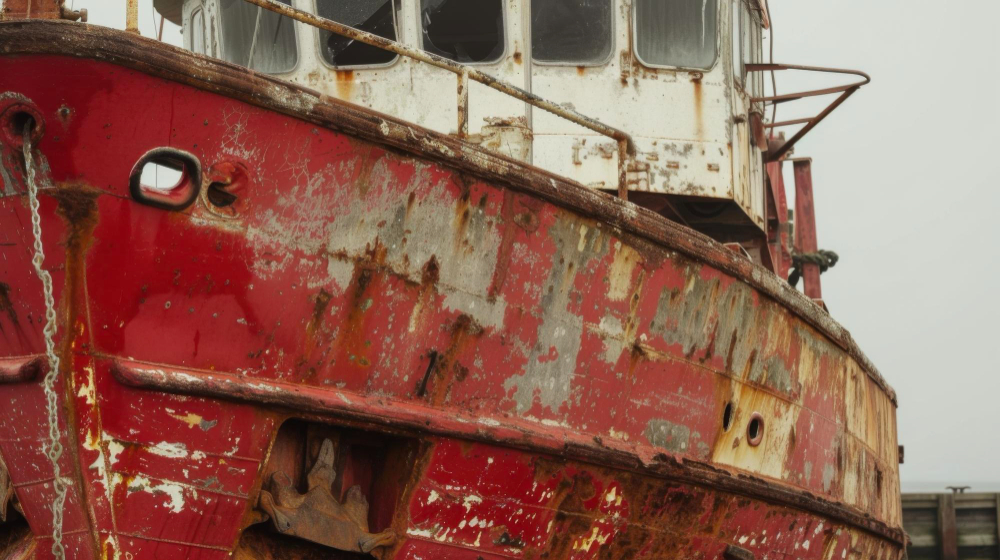Shipshape Solutions: Expert Tips for Managing Corrosion in Ships
Discover expert insights and actionable tips for effectively managing corrosion in ships. Corrosion in ships poses a significant threat to their structural integrity and safety, necessitating proactive measures to prevent and control its impact. In this guide, learn about the latest corrosion prevention strategies recommended by the CORCON Institute of Corrosion (CIC) to safeguard ships against the damaging effects of corrosion. From regular inspections to the use of protective coatings and advanced cathodic protection systems, explore key practices aimed at mitigating corrosion risks and ensuring the longevity of maritime assets.
Regular Inspections:
Conduct thorough and frequent inspections of all critical areas susceptible to corrosion in ships, including the hull, ballast tanks, and pipelines. Early detection of corrosion in ships can prevent extensive damage and ensure the vessel’s structural integrity.
Use of Protective Coatings:
Invest in high-quality protective coatings specifically designed for maritime environments to create a durable barrier against corrosive elements like saltwater and humidity. Proper application of these coatings is essential for long-term corrosion protection in ships.
Cathodic Protection Systems:
Install and maintain effective cathodic protection systems to safeguard metal surfaces from corrosion in ships. These systems help regulate electrical currents and mitigate the risk of corrosion by sacrificially corroding certain components.
Proper Maintenance:
Establish a comprehensive maintenance schedule for cleaning, painting, and repairing corroded areas in ships. Regular maintenance practices are crucial for preventing corrosion-related issues and extending the lifespan of ship components.
Monitor Environmental Conditions:
Stay vigilant and monitor environmental conditions such as temperature, humidity, and salinity levels that can accelerate corrosion in ships. By closely monitoring these factors, ship operators can proactively adjust preventive measures to combat corrosion effectively.
Material Selection:
Prioritize the use of corrosion-resistant materials for construction and replacement parts in ships. Choosing the right materials can significantly reduce the risk of corrosion-related problems and ensure the long-term durability of ship structures.
Education and Training:
Provide comprehensive education and training programs for crew members and maintenance personnel to increase awareness about corrosion prevention techniques and best practices for managing corrosion in ships. Well-trained personnel are instrumental in implementing effective corrosion control measures onboard.
Emergency Response Plan:
Develop and regularly review an emergency response plan to address corrosion-related emergencies in ships promptly. A well-prepared response plan can minimize the impact of corrosion incidents on ship operations and ensure the safety of crew members and passengers.
Collaboration with Experts:
Foster collaboration with corrosion experts and organizations specializing in maritime corrosion, such as CIC. Leveraging the expertise of these professionals can provide valuable insights and guidance on implementing advanced corrosion management strategies tailored to the unique challenges of ships.
Documentation and Record-Keeping:
Maintain detailed documentation and records of inspections, maintenance activities, and corrosion control measures implemented in ships. Thorough documentation not only helps track the effectiveness of corrosion management efforts but also facilitates compliance with regulatory requirements and industry standards
Frequently Asked Questions
How often should ships undergo corrosion inspections?
Ships should undergo regular inspections for corrosion, with the frequency depending on factors such as vessel age, operating conditions, and environmental exposure. Routine inspections, including visual examinations and non-destructive testing methods, are essential for early detection and mitigation of corrosion issues.
What are the common causes of corrosion in ships?
Corrosion in ships can be caused by various factors, including exposure to saltwater, humidity, and chemical pollutants. Other contributors may include galvanic corrosion from dissimilar metals, microbiologically influenced corrosion (MIC), and improper maintenance practices.
What role does education and training play in corrosion management for ships?
Education and training programs for ship crews and maintenance personnel are crucial for raising awareness about corrosion prevention techniques, safety protocols, and proper maintenance practices. Well-trained personnel can identify corrosion risks, implement preventive measures, and respond effectively to corrosion-related emergencies.
How does corrosion affect the structural integrity of ships?
Corrosion weakens metal structures in ships, leading to material degradation, loss of mechanical strength, and potential structural failures. Severe corrosion can compromise the safety of the vessel and pose risks to crew members and the environment.
Closing Insight
As an institute dedicated to advancing corrosion awareness and prevention, CORCON Institute of Corrosion (CIC) emphasizes the critical importance of effective corrosion management in ensuring the longevity and safety of ships. By implementing the expert tips outlined in this guide, shipowners and operators can not only minimize the financial burden associated with corrosion-related repairs but also uphold their commitment to environmental stewardship and regulatory compliance.
CIC remains steadfast in its mission to support the maritime industry through research, education, and collaboration, empowering stakeholders with the knowledge and resources needed to combat corrosion and preserve the integrity of ships for generations to come,
Image Reference : Freepik
Disclaimer: All trademarks, logos, and brand names are the property of their respective owners. All company, product, and service names used in this website are for identification purposes only. Use of these names, trademarks, and brands does not imply endorsement.

